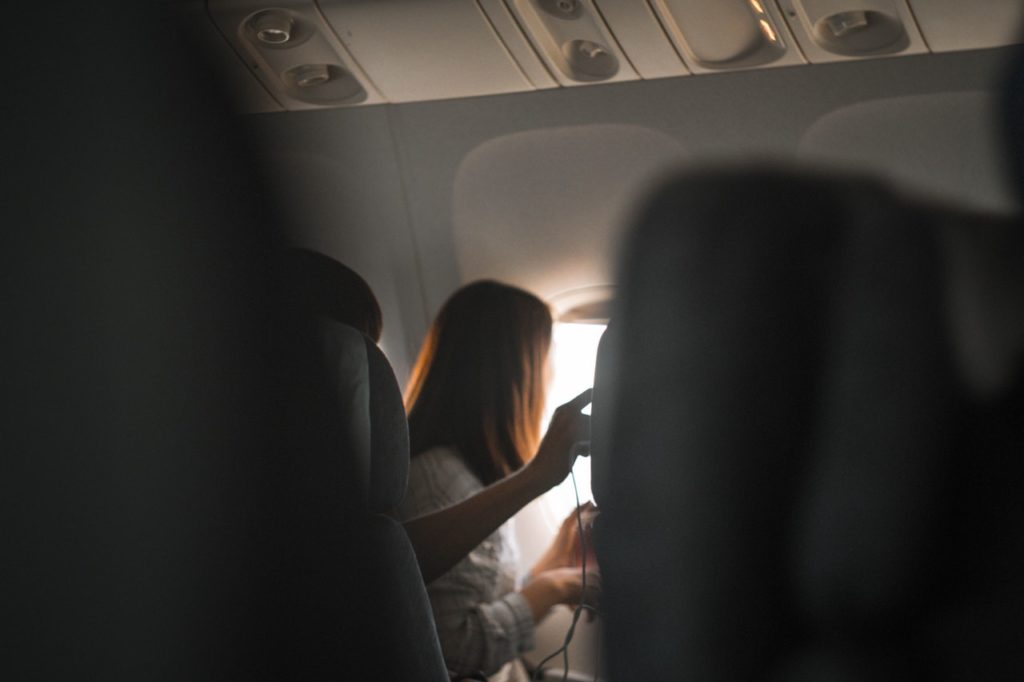Hack Your Jet Lag

By Dr. Sarah Toler
Sarah Toler, DNP, is a health writer and researcher who specializes in evidence-based mental and reproductive health.
As a traveler, you probably know how the “lag” in jet lag really feels. It’s that feeling when you travel from one zone to another, totally disrupting your body clock in the process.
When you land in your new destination, you feel fatigued, can’t think straight and have difficulty sleeping at night.
Jet Lag and the Circadian Clock
Jet lag causes insomnia and daytime sleepiness because it is a circadian rhythm sleep disorder. You’ve probably heard of the circadian clock. It’s a mechanism in your body which regulates your sleep and wake cycles.
You might not realize it, but jet leg cases physical side effects, too. If you experience constipation, diarrhea, headache or nausea when you reach your destination, you can probably attribute it to jet lag.
Preventing Jet Lag
Researchers have studied methods to reduce the effects of jet lag. In order to avoid developing a sleeping pill addiction, by self-medicating for jet lag, consider these evidence-based strategies to lessen the discomfort of time changes as a traveler.

1. Bright Light Therapy
Sunlight tells your body it’s time to be awake. Exposing yourself to sunlight when you arrive in your new time zone can make you feel more awake and alert. If the weather in your destination isn’t sunny, you can travel with a light box. Light boxes simulate sunlight and have also been shown to be effective at reducing symptoms of depression and seasonal affective disorder.
If you’re traveling one or two time zones away, try to get early morning light exposure. If you cross three to five time zones, expose yourself to sunlight in the late morning. When crossing six or seven time zones, expose yourself to light in the early afternoon. No matter how many time zones you cross, try to stay away until bed time in your new time zone.
2. Proactively Change Your Sleep Schedule
Many people find success at preventing jet lag by changing their sleep schedule before traveling. About a week before your trip, you can go to bed an hour earlier or later each night, depending on which direction you are traveling. If you are already adjusted to the time zone of your new destination before you even hop on a plane, you’ll be ready to set off and explore when you arrive.
3. Over-the-Counter Medications for Jet Lag
Two over-the-counter therapies people commonly use for jet lag are melatonin and diphenhydramine (Benadryl). Diphenhydramine hasn’t been studied in cases of jet lag, but some people report it helps them sleep once arriving at their destination. The side effects are minor and include sleepiness, brain fog, dizziness and dry mouth.
Melatonin has been the subject of many studies on jet leg recovery with favorable results. For trips with a distance of five or more time zones, it’s recommended to take melatonin on the day you are traveling at the time that’s considered bedtime at your destination. Melatonin side effects can include sleepiness, dizziness, headache and loss of appetite.
4. Prescription Medications for Jet Lag
You can visit your healthcare provider to obtain medications to help you manage jet lag. The most commonly prescribed medications are ramelteon (Rozerem), zolpidem (Ambien) and armodafinil (Nuvigil). These medications might be prescribed to people who travel frequently for work and need to be at the top of their game as soon as they arrive at their destination. Common side effects include dizziness and loss of memory.
While these medications can be used occasionally to cope with jet lag, repeated use can result in substance abuse, and addiction. Repeated use of sleeping pill can lead to Ambien abuse, which causes side effects like being unable to fall asleep. It can even cause the user to experience withdrawal symptoms when not using the drug.
The Best Jet Lag Trick
It’s true, jet lag can make you feel groggy, irritable and just plain miserable. It can even weaken your immune system. While it’s natural to be worried about jet lag, the best trick for jet lag is to try to avoid stressing about it as much as possible.
If you can, plan your trip one day longer so you can have a peaceful, easy day when you arrive and spend that day adjusting to the time difference. Also allow yourself one day to return to normal when you return home—that means taking the day off work and avoiding major commitments.
In preparation for your trip and after you return, make sure you’re eating a nutritious diet with lots of fresh fruit and vegetables plus a vitamin D supplement to help support your immune system.
